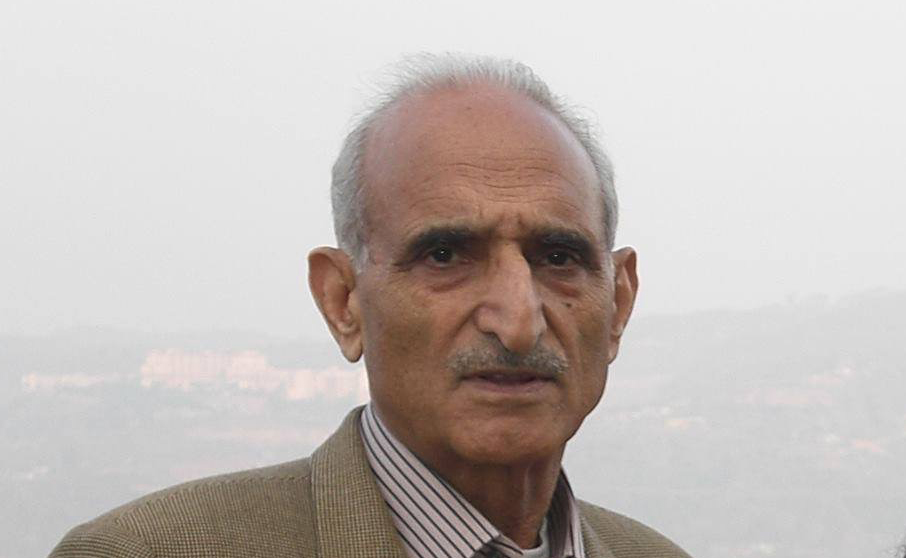by Mohammad Sayeed Malik
May be only a historical coincidence, but often it has been the fate of the National Conference to find itself struggling for dissolution–not mere suspension–of the state Legislative Assembly along with imposition of governor’s rule or, in other words, in times of breakdown of the constitutional machinery.

The party has had mixed luck in its quest, looking at course of events since March 1977, when the Governor’s rule was imposed for the first time, to June 2018 when it happens to be (so far) the last such occasion.
Coincidentally, in 1977 I was a part of the so-called system and thus an ‘insider’. I was then on contract service as the Director of Information &PR. Governor LK Jha had flown to Delhi for consultation with the newly installed Janata Party government headed by Morarji Desai. Chief Secretary Sushital Banerjee called me also to the meeting where concerned (legal/constitutional) experts had been summoned for administrative consultation before formulating the draft for Governor’s recommendation on the Assembly issue.
(An incorrigible moralist, Morarji Desai had asked Jha to go strictly by the book.)
The issue was clinched when chief minister Sheikh Mohammad Abdullah, in his response letter to governor’s communication on withdrawal of Congress legislative support to his government, categorically recommended dissolution of the House, even as the Congress had sought installation of an alternative government with Mufti Mohammad Sayeed as the new CM as GL Dogra as the Dy CM, submitting proof of its legislative majority.
The meeting concluded that J&K Constitution makes it binding upon the governor to accept the CM’s recommendation under all circumstances, notwithstanding loss of his majority support in the House. So the assembly was dissolved and new elections held within three months. Sheikh Mohammad Abdullah was re-installed as the Chief Minister in July 1977 after his party had swept the polls.
As opposed to this seemingly clear cut case, Farooq Abdullah found himself at the losing end in a constitutionally similar situation seven years later. On July 2, 1984, 13 NC MLAs defected to the Awami National Conference of GM Shah and with the Congress support the latter staked claim to forming the new government.
Governor Jagmohan called Farooq Abdullah to Raj Bhavan and confronted him with the reality on the ground. A letter had already been typed out and it was handed over personally to Farooq. It asked him to resign immediately as he had lost legislative majority and could not continue. There was no mention of imposition of governor’s rule in the (previously) typed letter but Jagmohan in his own hand added at its bottom that “as during our conversation you favoured dissolution of assembly and imposition of Governor’s rule I request that this recommendation may be communicated to me in writing”
However, after reaching back his Gupkar Road home, Farooq had second thoughts. His law minister PL Handoo advised against dissolution of assembly and, instead, drafted a letter denying loss of majority in the house and calling for an early session to ‘prove my majority on the floor’.
Jagmohan was not happy at turn of events as he was keen on imposing governor’s rule, obviously for a direct takeover by himself.
To his annoyance, New Delhi (Congress) intervened and tersely asked him to swear in Ghulam Mohammad Shah and his team which he did by the same evening. If Farooq had obliged and recommended in writing dissolution of assembly Jagmohan, in all probability, would have preempted New Delhi and imposed governor’s rule. Shah went on to rule the state for the next two years.
Here we are now, in 2018, Omar Abdullah crying and craving for dissolution of the assembly but neither the Governor nor New Delhi (BJP) seem inclined to obliging him.
Omar seems to be on stronger ground—but only morally. Not constitutionally. Outgoing PDP Chief Minister Mehbooba Mufti, for whatever reason, simply handed over her resignation letter to Governor NN Vohra without suggesting anything on the future status of the Assembly that was eventually placed in suspended animation.
 Unlike in the case of his grandfather (in 1977), Omar is in no position to force the hands of the governor. Nor like that in 1984 is he in a position to play his constitutional card to buttress his move as was done by his father.
Unlike in the case of his grandfather (in 1977), Omar is in no position to force the hands of the governor. Nor like that in 1984 is he in a position to play his constitutional card to buttress his move as was done by his father.
Attenuated politico-constitutional muscle of the local contenders in the fray has since shifted the balance of power from Srinagar to New Delhi.
It is there that the new course of action is going to be scripted. And who knows what that is going to be; and with what result.
(The author is a senior editor and noted commentator. The write-up was copied from his Facebook wall.)
from Kashmir Life https://ift.tt/2N9st4j
via IFTTThttps://kashmirlife.net
No comments:
Post a Comment